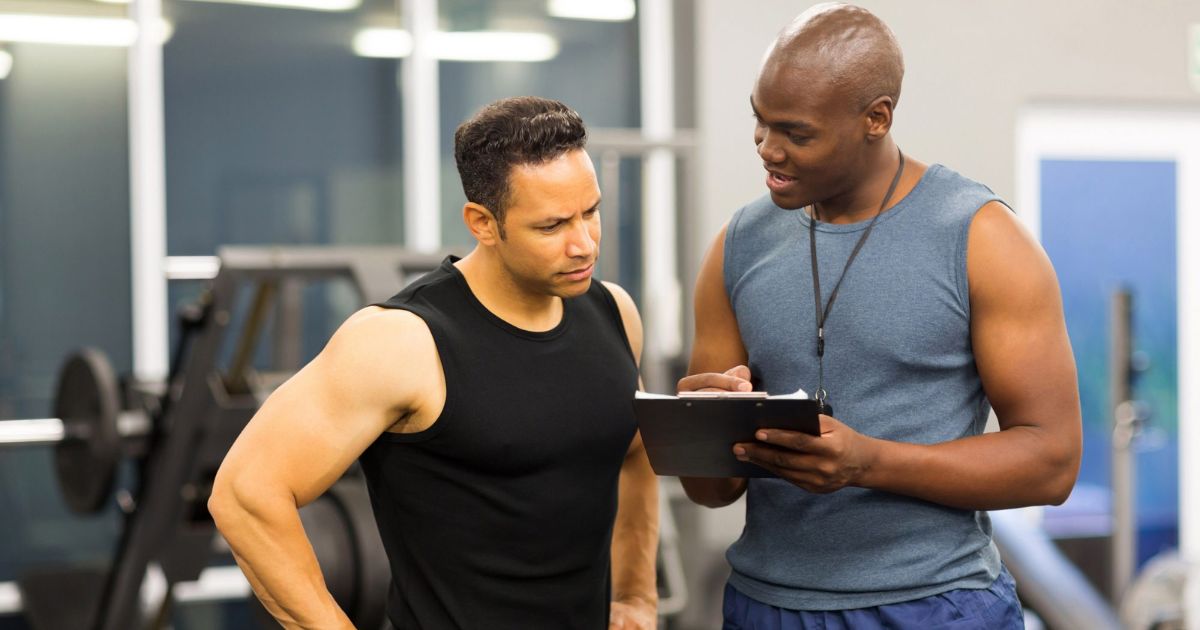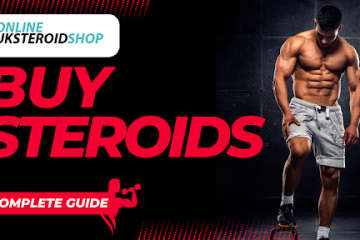Gamers, it’s time to take your skills to the next level by unlocking the power of physical fitness. Whether you’re a casual player or a hardcore pro, incorporating exercise into your routine can be a game-changer. Don’t worry, we’re not talking about becoming a bodybuilder – the goal is to develop a well-rounded fitness regimen that complements your gaming passion and boosts your overall performance.
As any top player will tell you, gaming requires incredible stamina, focus, and coordination. That’s where fitness comes into play. By prioritizing your physical and mental well-being, you’ll experience a multitude of benefits that directly translate to better gameplay. Increased endurance, sharper reaction times, reduced fatigue, and improved cognitive function are just a few of the advantages you can expect.
So, get ready to level up your game with our expert fitness advice for players. We’ll guide you through creating a personalized routine that caters to your unique needs, optimizing your gaming setup for maximum comfort and productivity, and even exploring mental strategies to help you stay in the zone.
The Mind-Body Connection: Why Fitness Matters for Gamers
Before we dive into the specifics, let’s address the elephant in the room: why should gamers care about fitness? The answer lies in the intricate mind-body connection. Physical exercise isn’t just about building muscles (although that’s a nice bonus); it’s about nourishing your overall well-being, both mentally and physically.
Numerous studies have shown that regular exercise can enhance cognitive function, improve focus and concentration, and even boost mood and reduce stress levels. These benefits are invaluable for gamers who often find themselves in intense, high-pressure situations where split-second decisions can make or break a match.
Moreover, maintaining a healthy level of physical activity can help combat the sedentary nature of gaming. Prolonged periods of sitting can lead to a host of issues, including poor posture, muscle imbalances, and even an increased risk of obesity and other health problems. By incorporating fitness into your routine, you’ll counteract these negative effects and feel more energized and alert during those epic gaming sessions.
Case Study: Professional gamer and streamer, “ProPlayer23,” attributes a significant portion of his success to his dedication to fitness. “Before I started hitting the gym regularly, I would often experience fatigue and lack of focus during extended tournaments,” he explains. “But once I made fitness a priority, I noticed a dramatic improvement in my stamina, reaction times, and overall mental clarity. It’s like I unlocked a whole new level of performance.”
Create Your Custom Fitness Plan
Now that we’ve established the importance of fitness for gamers, it’s time to craft your personalized routine. The key is to strike a balance between cardiovascular exercise, strength training, and flexibility work – a well-rounded approach that targets all aspects of your physical and mental performance.
Cardio for Endurance
Cardiovascular exercise, or “cardio,” is essential for building endurance and improving your overall stamina. This is particularly crucial for gamers who often engage in marathon sessions or intense, fast-paced gameplay. By increasing your aerobic capacity, you’ll be able to maintain focus and energy levels for longer periods, giving you a competitive edge.
Some excellent low-impact cardio options for gamers include:
- Walking or hiking
- Cycling (stationary or outdoor)
- Swimming
- Elliptical or rowing machines
Aim for at least 150 minutes of moderate-intensity cardio per week, or 75 minutes of vigorous activity. However, it’s important to adjust these guidelines based on your personal fitness level and gaming demands. For example, professional players engaged in high-intensity tournaments may need to increase their cardio workload accordingly.
Fitness Tip from the Pros: “Incorporating cardio into my routine has been a game-changer,” shares professional gamer “SpeedyGonzalez.” “Not only do I have more stamina during long sessions, but I’ve also noticed improved blood flow and better cognitive function. I can’t recommend it enough for my fellow gamers.”
Resistance Training for Strength and Coordination
While cardio is crucial for endurance, resistance training is equally important for developing the strength and coordination necessary for optimal gaming performance. Whether you’re a first-person shooter enthusiast or an avid real-time strategy player, having a solid foundation of muscle strength and tone can help minimize the risk of repetitive strain injuries and improve your overall dexterity.
Here are some effective resistance training exercises to consider:
- Bodyweight exercises (push-ups, squats, lunges)
- Light weightlifting (dumbbells, resistance bands)
- Yoga or Pilates (for core strength and stability)
Aim for at least two full-body resistance training sessions per week, targeting all major muscle groups. Don’t worry about bulking up – the goal is functional strength and muscular endurance, not necessarily hypertrophy (muscle growth).
Analogy: Think of your body as a high-performance gaming rig. Just like you wouldn’t expect optimal performance from outdated hardware, you can’t expect your body to function at its best without proper maintenance and conditioning. Resistance training is like upgrading your CPU and RAM – it enhances your overall capabilities and allows you to handle more demanding workloads.
Flexibility and Mobility Work
In the world of gaming, posture and mobility are often overlooked but incredibly important factors. Prolonged periods of sitting can lead to tightness and imbalances, which can not only impact your gameplay but also increase your risk of injury.
That’s why incorporating flexibility and mobility work into your routine is essential. By regularly stretching and performing targeted mobility drills, you’ll improve your range of motion, alleviate muscle tension, and maintain proper posture – all of which can contribute to better performance and reduced discomfort during those extended gaming sessions.
Here are some recommended flexibility and mobility exercises to incorporate:
- Yoga poses (downward dog, forward folds, pigeon pose)
- Dynamic stretching routines (leg swings, arm circles)
- Foam rolling and self-myofascial release
Aim for at least 10-15 minutes of dedicated stretching and mobility work after each workout or gaming session. This can help counteract the effects of prolonged sitting and maintain optimal joint health and function.
Example Stretch: Seated Forward Fold
This simple yet effective stretch can help alleviate tightness in the hamstrings, lower back, and spine – areas that often become compromised from extended sitting.
Optimize Your Gaming Setup
While developing a comprehensive fitness routine is crucial, it’s equally important to optimize your gaming setup for maximum comfort and ergonomic support. After all, even the fittest players can experience discomfort and potential injuries if their workstation isn’t properly configured.
Here are some key tips for creating an ergonomic gaming environment:
- Proper Posture: Maintain a neutral spine position by adjusting your chair height and positioning your monitors at eye level. Avoid slouching or excessive leaning, which can strain your neck and back.
- Equipment Positioning: Keep your keyboard, mouse, and other peripherals within easy reach to minimize excessive stretching or twisting. Consider investing in ergonomic gaming gear designed for comfort and support.
- Micro-Breaks: Take frequent short breaks (at least once every hour) to stand up, stretch, and give your eyes a rest from the screen. Even a few minutes of movement can help counteract the effects of prolonged sitting.
- Supportive Chair: Invest in a high-quality gaming chair that provides ample lumbar support and adjustability. A chair with proper cushioning and ergonomic design can significantly reduce discomfort and minimize the risk of repetitive strain injuries.
By optimizing your gaming setup, you’ll not only enhance your overall comfort but also reduce fatigue and minimize the potential for injuries. This, in turn, can lead to improved focus, reaction times, and overall gameplay performance.
Statistic: According to a study by the American Academy of Orthopaedic Surgeons, up to 90% of gamers experience some form of musculoskeletal discomfort or pain, often related to poor posture and ergonomic setup. By prioritizing proper workstation ergonomics, you can significantly reduce this risk and enjoy more comfortable, injury-free gaming sessions.
Nutrition and Supplementation
Proper fueling is another critical component of elevating your game. Just as you wouldn’t expect a high-performance car to run optimally on low-quality fuel, your body requires the right nutritional intake to function at its best.
Aim for a balanced diet rich in lean proteins, complex carbohydrates, and a variety of fruits and vegetables.
Nutrition and Supplementation
Aim for a balanced diet rich in lean proteins, complex carbohydrates, and a variety of fruits and vegetables. These nutrient-dense foods will provide you with sustained energy, support muscle recovery, and promote overall health and well-being.
Lean Proteins: Opt for sources like chicken, turkey, fish, eggs, and plant-based options like tofu or legumes. Protein is essential for building and repairing muscle tissue, which is especially important if you’re incorporating resistance training into your routine.
Complex Carbohydrates: Whole grains, starchy vegetables, and low-glycemic fruits like berries are excellent choices for providing long-lasting energy without the dreaded “crash” associated with simple sugars.
Fruits and Vegetables: Load up on these nutritional powerhouses to ensure you’re getting a wide range of essential vitamins, minerals, and antioxidants to support overall health and recovery.
Smart Snacking for Sustained Energy
When it comes to snacking during those epic gaming marathons, it’s important to make wise choices that will fuel your body and mind without weighing you down. Consider options like:
- Fresh fruits (apples, bananas, grapes)
- Nuts and seeds (almonds, pistachios, pumpkin seeds)
- Whole-grain crackers or rice cakes with nut butter
- Greek yogurt with berries
- Hummus and vegetable sticks
These snacks provide a combination of complex carbohydrates, healthy fats, and proteins to help maintain stable energy levels and keep you feeling satiated.
The Role of Supplementation
While a well-rounded diet should provide most of the nutrients your body needs, some gamers may benefit from strategic supplementation. Here are a few popular options to consider:
Caffeine: In moderation, caffeine can improve alertness, focus, and reaction times. However, be mindful of your intake and avoid excessive consumption, as it can lead to jitters, crashes, and potential addiction.
Creatine: This popular supplement has been shown to help increase muscle strength, power, and endurance, making it a potential ally for gamers engaging in resistance training.
Omega-3s: These healthy fats, found in sources like fish oil or algae-based supplements, may support brain health, cognitive function, and reduce inflammation – all beneficial factors for gamers.
Vitamin D: Many individuals, especially those with limited sun exposure, may be deficient in this essential vitamin. Supplementation can support immune function, bone health, and potentially cognitive performance.
Mental Strategies for Peak Performance
While physical fitness is undoubtedly crucial for gamers, it’s important to remember that mental well-being plays an equally significant role in achieving peak performance. Developing strategies to manage stress, anxiety, and tilt can be game-changing.
Breathwork and Meditation
Incorporating breathwork and meditation into your routine can have profound impacts on your ability to stay focused, calm, and present during intense gaming sessions. Simple techniques like box breathing (inhale for 4 counts, hold for 4, exhale for 4, hold for 4) or mindfulness meditation can help quiet the mind, reduce anxiety, and promote a state of flow.
Quote: “Meditation has been a game-changer for me,” shares professional gamer “ZenMaster.” “It’s helped me stay grounded and present, even in the most high-pressure situations. I can’t recommend it enough for fellow gamers looking to gain a mental edge.”
Managing Tilt and Anxiety
Tilt, or the emotional state of frustration and tilting that can occur during gameplay, is a common challenge for many gamers. To combat this, develop a routine for managing these emotions:
- Practice self-talk and positive affirmations to reframe negative thought patterns.
- Take scheduled breaks to step away from the game, stretch, and reset.
- Implement a post-game debrief routine to analyze your performance objectively and identify areas for improvement.
Remember, managing tilt and anxiety is a skill that can be developed with practice, just like any other aspect of gaming.
Visualization and Mental Rehearsal
Just as athletes use visualization techniques to mentally rehearse their performances, gamers can leverage similar strategies to enhance their gameplay. Visualize yourself executing complex maneuvers, staying calm under pressure, or making clutch plays – this mental practice can reinforce neural pathways and boost your confidence on the virtual battlefield.
Case Study: Professional esports player “TacTicMaster” attributes much of his success to his dedication to mental training techniques. “I spend at least 15 minutes before each match visualizing myself performing at my peak,” he shares. “It’s like I’ve already played through the scenarios in my mind, which helps me stay composed and react instinctively when the pressure is on.”
Stay in touch to get more updates & news on Latestdash !




